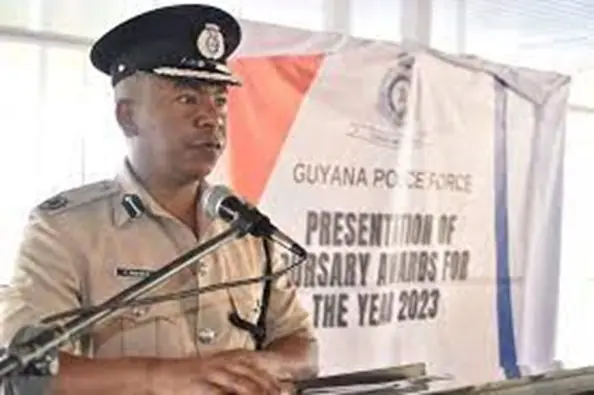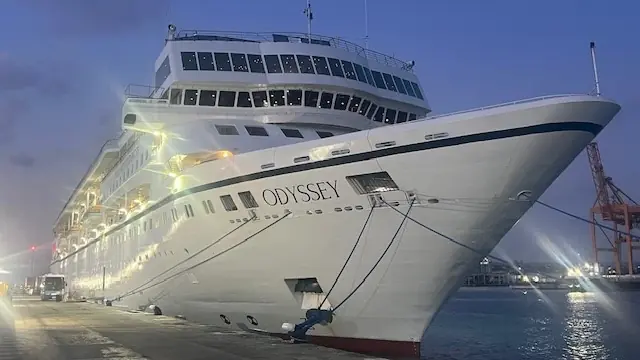ACM seeks apology from Grenada govt for barring media from swearing in ceremony
Media personnel in Grenada have taken a stand against the government as the Association of Caribbean Media Workers (ACM) seeks an official apology, after representatives of the media in the nation were not allowed to attend or cover the swearing in ceremony of the nation’s Cabinet Ministers on Thursday.
11th of January 2024

Media personnel in Grenada have taken a stand against the government as the Association of Caribbean Media Workers (ACM) seeks an official apology, after representatives of the media in the nation were not allowed to attend or cover the swearing in ceremony of the nation’s Cabinet Ministers on Thursday.
The most prompt response to this controversial decision by the government, came from the Media Workers Association of Grenada (MWAG) which openly condemned the government for what is being seen as an attack on free media and independent press outfits in the nation.
The incident came as a shock to most observers as it was the first such instance in the history of the nation.
An official statement issued by the Media Workers Association of Grenada (MWAG) said that the government’s actions were a sign of its complete contempt for the people of the nation and the value of local media. The organisation also asked that the government to apologise to media professionals who were affected by the decision and guarantee that such restrictions will not be placed on media personnel in the future.
The Association of Caribbean Media Workers (ACM) has made the decision to second the stance taken by the Media Workers Association of Grenada (MWAG), in a show of solidarity with media professionals in Grenada and the region.
The ACM has also stated that the organisation hopes to see an open media policy being implemented in the nation, so as to help establish policies that ensure the rights of local media in the nation and protect media personnel from decisions that disregard their professional rights and privileges .
Reporters Without Borders (RSF) also came out in support of media professionals in Grenada, taking to Twitter to address the issue by stating the following, “RSF was disappointed to see Grenada’s government bar reporters from covering its cabinet swearing-in ceremony last week. As the new cabinet takes power, it is essential for Grenada’s government to signal its commitment to press freedom and transparency going forward.”
The government also took the decision to refrain from speaking to the media for 24 hours after the finalization of the cabinet which infuriated the media, further complicating matters.
This stance that the government of Grenada has taken against the media in the nation is not an abrupt occurrence, but something that has been put into place incrementally.
Previously, the government made the decision to cease the norm of weekly post cabinet briefings.
It was stated that the media would be informed of updates from cabinet meetings on a need-to-know basis. Naturally, this decision was not received well by media houses in the nation.
Prime Minister Dickon Mitchell was responsible for appointing the cabinet and has held his position for roughly one and a half years. He now finds himself entrenched in the midst of this controversy. Another significant personality that oversaw the swearing in ceremony is Dame Cecile La Grenade, the Governor General of Grenada.
The MWAG has also enlisted the help of groups which hold significant sway over the civil society of Grenada, with the Grenada Trade Union Council, Conference of Churches and Bar Association, which have also condemned the government’s restrictions on the media.
The primary demand of the MWAG is that the government must come out and explain its actions, while simultaneously issuing a public apology to the independent media of Grenada.
Since the media in Grenada has garnered the support of the civil society, as well as regional support from organisations which are deeply involved in the media industry in the region, it now finds itself in a position of relative strength in its stand against the government.
The lack of a concrete statement from the government, which could address the issue in a definitive manner has become a cause of concern for many. The lack of clarity surrounding the decision to bar independent media form the swearing in ceremony and the subsequent hush around what is to come next is unsettling for those who see free media as one of the most important and relevant mediums for the dissemination of information in the nation.
Regional pressure from organisations which back free media in the Caribbean, as well as the questions being raise with in Grenada, are expected to push the government into some form of action that will bring a modicum of clarity to the issue.
If such an instance comes to pass, it would at the very least, leave representatives of free media in the nation with some idea as to what is the correct form of recourse for them.
Latest
- National School Meals Programme rejects claims of substandard vegetarian meal in Antigua and Barbuda
-
LIAT Air Expands Caribbean Network with New Routes to Antigua and Montego Bay -
US withdraws advisory on St. Kitts and Nevis, gives green flag to its Citizenship Programme -
CARIFTA Games 2026 set to take place in Grenada from April 4-6 -
West Indies Women’s Cricket team announced for T20 series against Sri Lanka in Grenada
Related Articles

1st of December 2024

1st of December 2024

23rd of November 2024

28th of November 2024

22nd of November 2024

20th of November 2024

18th of November 2024

17th of November 2024
